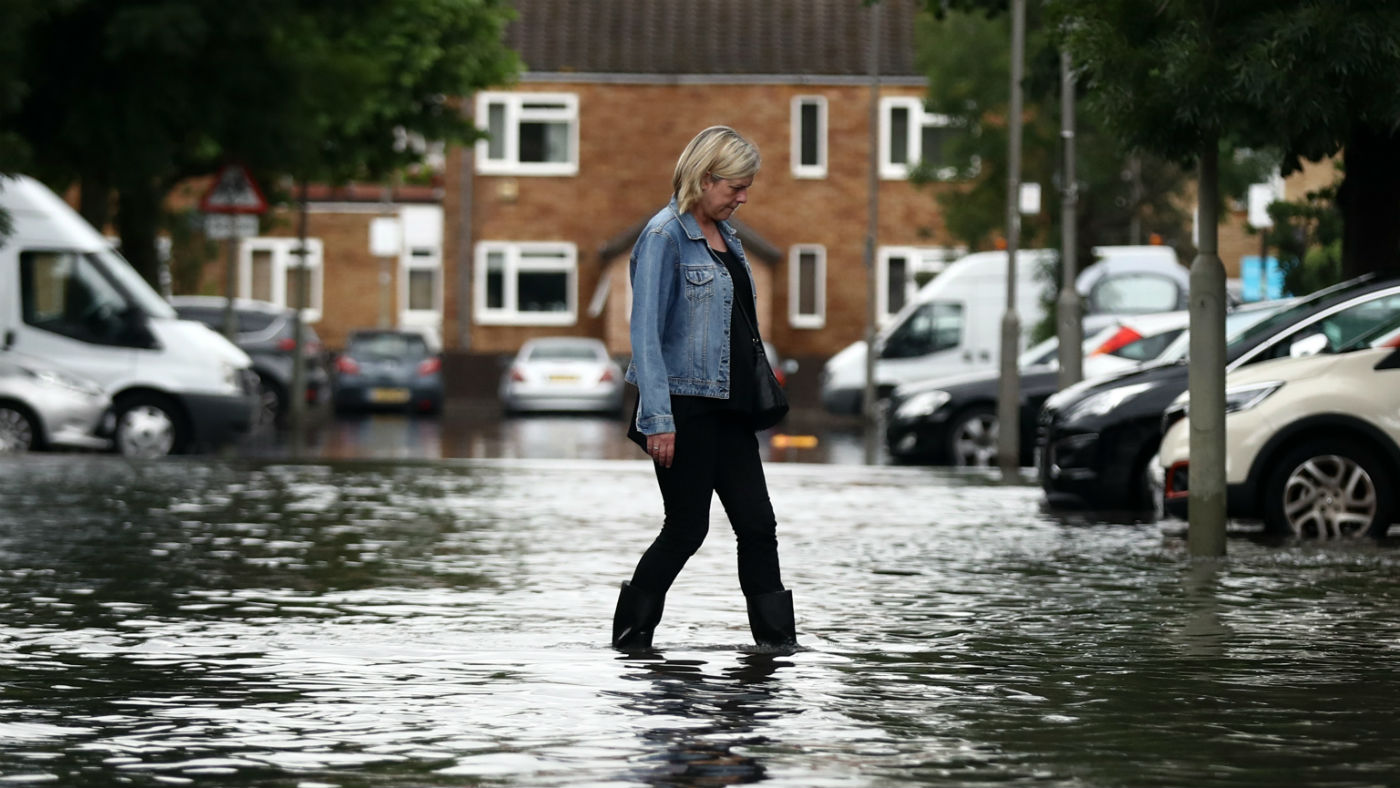Droughts and floods: the UK’s worrying climate future
Two alarming reports predict more extreme weather events for northern England

A free daily email with the biggest news stories of the day – and the best features from TheWeek.com
You are now subscribed
Your newsletter sign-up was successful
Increases in both floods and droughts have been predicted for northern England, two new studies are warning.
Britain will suffer some of the worst river flooding in Europe, according to a study published in Nature.
The paper drew its conclusions after researchers from 24 European countries examined half a century’s worth of data. They found that the North of England and southern Scotland will be the areas worst hit by the worrying trend, with an 11% increase in river flood levels per decade.
The Week
Escape your echo chamber. Get the facts behind the news, plus analysis from multiple perspectives.

Sign up for The Week's Free Newsletters
From our morning news briefing to a weekly Good News Newsletter, get the best of The Week delivered directly to your inbox.
From our morning news briefing to a weekly Good News Newsletter, get the best of The Week delivered directly to your inbox.
The Independent says the conclusions of the 50 scientists from 35 research institutions “have provided the clearest evidence yet that climate change is affecting the severity of floods”.
There are regional variations because in central and northwestern Europe increased levels of precipitation are making soils wetter and therefore unable to absorb excess water.
By contrast, in southern Europe, the risk of flooding is predicted to decline by up to 23% because climate change is causing precipitation to fall while higher temperatures are drying out soils, meaning they can absorb more water.
“Processes differ across Europe – but the regional patterns all correspond well with predicted climate change impacts,” said Professor Gunter Bloschl from the Vienna University of Technology.
A free daily email with the biggest news stories of the day – and the best features from TheWeek.com
“This shows us that we are already in the midst of climate change. We will see the effects of these changes in the next decades. Flood management must adapt to these new realities,” he added.
Jamie Hannaford, of the UK’s Centre for Ecology and Hydrology, said: “This timely study adds to a growing body of evidence that shows that flood magnitude has increased in the UK over the last five decades, particularly in parts of northern and western Britain.”
Meanwhile, a report for think tank IPPR North found that demand for water could outstrip supply by 2035 in parts of northern England. A perfect storm of major reductions in rainfall and water flow, population increase and inadequacies in water companies’ efforts to reduce leakage could lead to drought.
The report says that in Yorkshire and the Humber, water shortages could soon be a reality unless households and businesses reduce their consumption. The current average of 141 litres per person per day is significantly higher than Germany’s 121 litres per day, the authors note.
The Guardian says floods and droughts can become growing threats due to global heating, which means “the likelihood of drought is projected to increase while average summer river flows may decrease, reducing water availability, even as the risk of flooding is likely to increase, particularly in winter”.
The Environment Agency has previously warned that England could run short of water within 25 years.
Chief executive Sir James Bevan said the country faces the ‘‘jaws of death” unless a concerted effort is taken to stop leaks, improve efficiency of water usage in the home and transform public attitudes.
He added: “We need water wastage to be as socially unacceptable as blowing smoke in the face of a baby or throwing your plastic bags into the sea.”
-
 Sepsis ‘breakthrough’: the world’s first targeted treatment?
Sepsis ‘breakthrough’: the world’s first targeted treatment?The Explainer New drug could reverse effects of sepsis, rather than trying to treat infection with antibiotics
-
 James Van Der Beek obituary: fresh-faced Dawson’s Creek star
James Van Der Beek obituary: fresh-faced Dawson’s Creek starIn The Spotlight Van Der Beek fronted one of the most successful teen dramas of the 90s – but his Dawson fame proved a double-edged sword
-
 Is Andrew’s arrest the end for the monarchy?
Is Andrew’s arrest the end for the monarchy?Today's Big Question The King has distanced the Royal Family from his disgraced brother but a ‘fit of revolutionary disgust’ could still wipe them out
-
 Earth is rapidly approaching a ‘hothouse’ trajectory of warming
Earth is rapidly approaching a ‘hothouse’ trajectory of warmingThe explainer It may become impossible to fix
-
 The plan to wall off the ‘Doomsday’ glacier
The plan to wall off the ‘Doomsday’ glacierUnder the Radar Massive barrier could ‘slow the rate of ice loss’ from Thwaites Glacier, whose total collapse would have devastating consequences
-
 Can the UK take any more rain?
Can the UK take any more rain?Today’s Big Question An Atlantic jet stream is ‘stuck’ over British skies, leading to ‘biblical’ downpours and more than 40 consecutive days of rain in some areas
-
 As temperatures rise, US incomes fall
As temperatures rise, US incomes fallUnder the radar Elevated temperatures are capable of affecting the entire economy
-
 The world is entering an ‘era of water bankruptcy’
The world is entering an ‘era of water bankruptcy’The explainer Water might soon be more valuable than gold
-
 Climate change could lead to a reptile ‘sexpocalypse’
Climate change could lead to a reptile ‘sexpocalypse’Under the radar The gender gap has hit the animal kingdom
-
 The former largest iceberg is turning blue. It’s a bad sign.
The former largest iceberg is turning blue. It’s a bad sign.Under the radar It is quickly melting away
-
 How drones detected a deadly threat to Arctic whales
How drones detected a deadly threat to Arctic whalesUnder the radar Monitoring the sea in the air